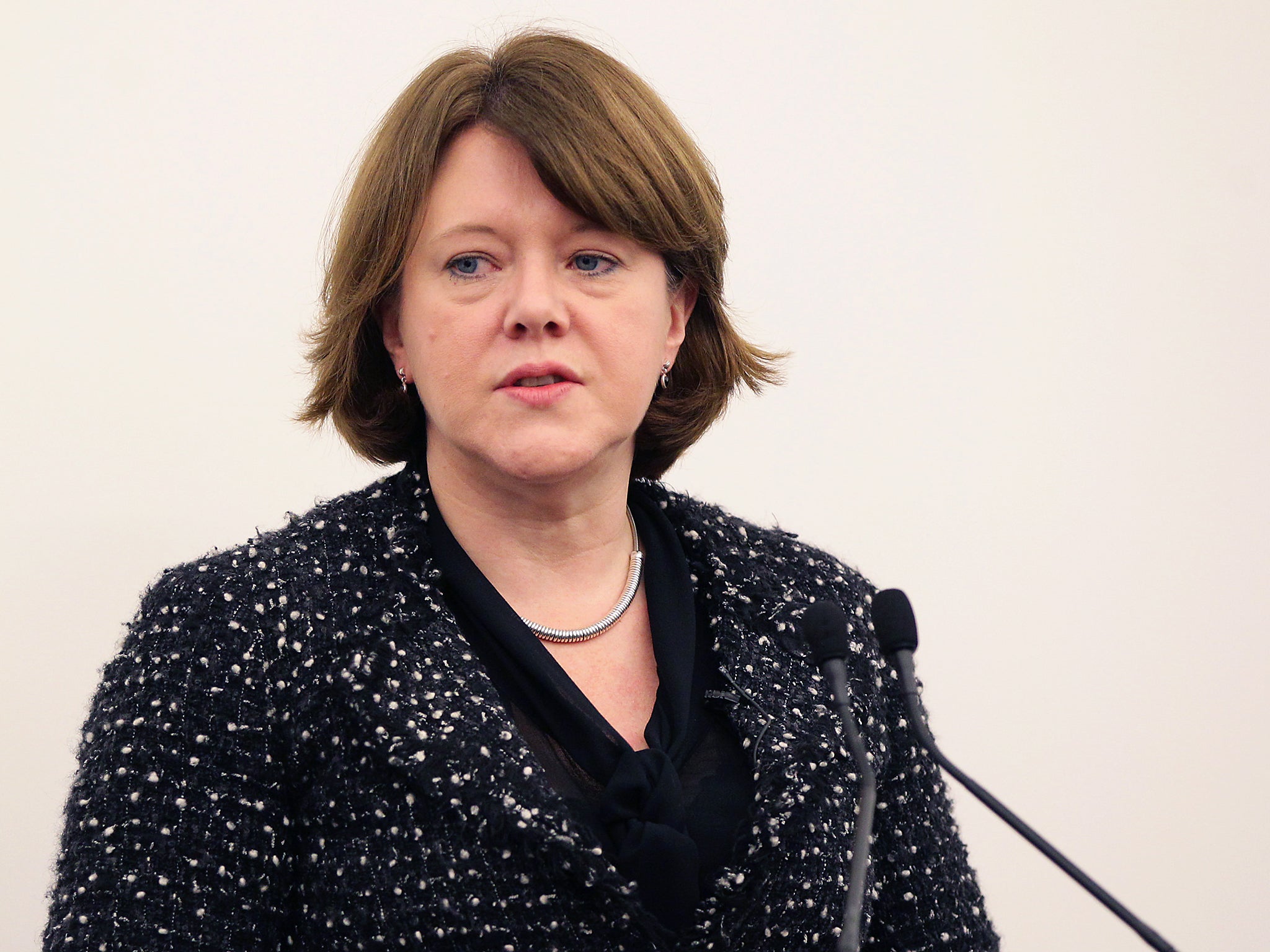Government 'mishandling' trans rights reform by failing to tackle health inequalities, former Tory minister says
‘Many transgender people simply don’t have access to the basic healthcare that the rest of us take for granted,’ Maria Miller says

Your support helps us to tell the story
From reproductive rights to climate change to Big Tech, The Independent is on the ground when the story is developing. Whether it's investigating the financials of Elon Musk's pro-Trump PAC or producing our latest documentary, 'The A Word', which shines a light on the American women fighting for reproductive rights, we know how important it is to parse out the facts from the messaging.
At such a critical moment in US history, we need reporters on the ground. Your donation allows us to keep sending journalists to speak to both sides of the story.
The Independent is trusted by Americans across the entire political spectrum. And unlike many other quality news outlets, we choose not to lock Americans out of our reporting and analysis with paywalls. We believe quality journalism should be available to everyone, paid for by those who can afford it.
Your support makes all the difference.A former Conservative cabinet minister has accused the government of “mishandling” reforms needed to improve the health and quality of life of trans people.
Maria Miller, the chair of the commons women and equalities committee – and equalities minister under David Cameron, said basic healthcare “taken for granted” by the public is out of reach to trans people.
This is down to the government’s failure to act on recommendations made by her committee three years ago, the MP for Basingstoke said.
The committee is due to publish a new report on the care of LGBT+ people in the coming weeks but Ms Miller has already warned services are “going backwards quickly” – with trans people among the worst affected.
“Many trans people simply don’t have access to the basic healthcare that the rest of us take for granted – things like cervical smears are often things that trans men are not able to access,” Ms Miller told the Press Association.
Theresa May did commit to reforming the Gender Recognition Act 2004, to remove intrusive red tape for those legally changing gender, and launched a £1m LGBT+ health and social care fund in November.
However, Ms Miller said the focus on legal reforms has “eclipsed” efforts to improve trans people’s experiences.
“As a result there has been a debate focusing in on things that really are not as important as making sure that trans people have access to public services, and the debate has been focused in on issues that are much less important to trans people’s lives,” she said.
“I think they have mishandled their approach to trans issues and if they were actually looking carefully at my select committee report they would have focused in on the provision of services first to make sure that that was right.
“Those are the issues that really matter to trans people’s lives, and then look at the review of the Gender Recognition Act – that was not the most pressing issue for trans people that we met as part of the inquiry.”
There also appears to have been little thought as to how the legal reforms of the Gender Recognition Act would be achieved, she added.
The reform pledge faced a backlash from some feminist groups, who have raised concerns that people who identify as a different gender could gain access to single-sex spaces, such as bathrooms, or services.
Ms Miller called on the government to make clear that no one’s rights would be eroded by making the legal system fairer to trans people.
“My advice to ministers is that they should be clear that there is no threat to single-sex services, they are clearly protected in law and they need to be clearer on that,” she said.
A government spokesperson said: “Our ambitious LGBT Action Plan – announced last year and backed by £4.5m – committed to putting LGBT people’s needs at the heart of the NHS.
“This includes improving the way gender identity services work for transgender adults and appointing a National Adviser to lead improvements in LGBT healthcare. Since November, we have also launched the LGBT Health and Social Care Fund, which will provide £1m to tackle the health inequalities LGBT people face.
“Everyone in this country should feel safe, supported and happy to live their lives – and this includes accessing appropriate support and treatment from the NHS as and when they need it, regardless of their sexual orientation, race or gender identity.”
Join our commenting forum
Join thought-provoking conversations, follow other Independent readers and see their replies
Comments